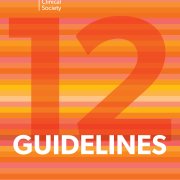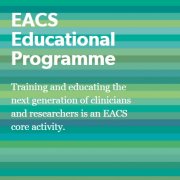Plenaries Synopses
Introduction to pathophysiology of HIV
Clinical
4 September 2023 - 8:45-9:10
HIV is a retrovirus targeting key cells from the immune system and causing slowly progressive lethal immune disorders. This lecture will focus on the pathophysiological mechanisms of this disease with special emphasis on HIV receptors and replication cycle in immune cells, mechanisms by which HIV hijacks and escapes the immune responses and induces CD4 lymphopenia and other immune defects and inflammation. Pathophysiological mechanisms involved in immune restoration and benefits of antiretroviral therapy will also be described as well as current views on how to manipulate the immune system to help move forward HIV remission or cure.
Speaker: Prof. Brigitte Autran (France)
Value of measuring resistance in HIV
Clinical
4 September 2023 - 9:10-9:40
Drug resistance
9:10-9:25
The landscape of antiretroviral drug resistance in HIV treatment is a dynamic and ever-evolving field. This lecture will explore the impact of resistance on both old and new antiretrovirals and delve into cutting-edge data that challenge previous assumptions. You will gain a refined understanding of how certain drugs maintain activity despite resistance, the relevance of low-frequency resistant variants, and the significance of resistance archiving within integrated provirus. Whether you’re already knowledgeable on the topic or just starting to learn, our lecture will provide you with a sophisticated approach to predicting and interpreting drug resistance and equip you with a solid foundation to bring to case-based discussions.
Speaker: Prof. Anna-Maria Geretti (United Kingdom)
State of the ART of ARV therapy
Clinical
4 September 2023 - 9:40-10:05
Currently, HIV infection can be controlled long-term with potent, safe and convenient antiretroviral therapy that leads to prolonged healthy survival in our patients. This session will cover current treatment guidelines, key considerations when choosing an initial antiretroviral regimen and review the clinical role of new and investigational agents and regimens that will continue to move HIV treatment forward.
Speaker: Dr Nicola Mackie (United Kingdom)
Why is research important?/Choosing the right study design
Research
4 September 2023 - 11:00-11:30/11:30-12:00
As conducting research has many resource implications, in order to conduct the “best” research that we can and give ourselves the best chance of success, we should identify and define a clear research question. This will then help us select the most appropriate study design to answer the question. In this session, we will describe an approach to developing a research question and the most commonly used study designs (randomised controlled trials, cohort, case-control and cross-sectional studies), giving examples of each, and will describe their pros and cons.
Speakers: Prof. Caroline Sabin (United Kingdom)/ Prof. Anders Boyd (Netherlands)
Optimizing ART in the suppressed patient
Clinical
5 September 2023 - 8:30-9:00
Treatment strategies have moved forward a key achievement with the universal recommendation to treat any HIV-infected individual regardless of CD4. In the absence of any cure/remission strategies, long-life therapy is a mandatory condition to maintain viral suppression leading to mormalised life and no transmission. As a consequence of earlier initiation therapy in patients with better immunovirological status, using more potent drugs, management of virally suppressed patients has evolved towards reducing drug burden using alternative strategies in order to minimise long-term exposure, reducing drug long-term toxicity and potentially minimising costs. Learning the best-proven strategies, their benefits and how to individualise ART in different settings is a major issue for HIV physicians with the objectives of leading HIV-infected individuals towards several decades of suppressive ART taking into account the incident events of life-time as ageing co-morbidities or adverse events linked to ART drug use.
Speaker: Prof. Christine Katlama (France)
HIV & malignancies
Clinical
5 September 2023 - 9:30-10:00
Cancer, both AIDS-defining or non-AIDS-defining cancers (NADCs), has become the leading cause of death in people living with HIV, associated with an increase in the incidence of some NADCs compared to the general population, including lung cancer, hepatocellular carcinoma, head and neck cancers, anal cancer, and Hodgkin lymphoma. Incidence of NADCs should be expected to increase further as the PLWH population continues to age. This session will provide an update on epidemiology and the identification of risk factors to determine the most appropriate prevention and screening strategies in this population. Cancer management in HIV patients is based on general recommendations, with specific attention to comorbidities or drug interactions and some special considerations for cancer treatment in these patients will be discussed.
Speaker: Prof. Stéphane De Wit (Belgium)
P-values and hypothesis testing/Confidence intervals
Research
5 September 2023 - 10:45-11:1011:10-11:35
Presentations of data in the medical world are littered with p-values. But what do these p-values really tell us, and is a P-value <0.05 really that important? In this lecture we will start by illustrating how the P-value can help us to differentiate real findings from associations which may occur by chance. We will then demonstrate the general principle of hypothesis testing, using worked examples to illustrate not only how they can be interpreted, but also some of the problems that may be encountered when relying solely on p-values for this purpose. We will then demonstrate how confidence intervals can be used to supplement the information that is provided by the P-value. Participants will then have the opportunity to put their knowledge into practice using real-life examples from the published literature.
Speakers: Prof. Caroline Sabin (United Kingdom)/ Dr Tracy Glass (Switzerland)
Hepatitis B / Hepatitis C
Clinical
6 September 2023 - 9:00-9:30
Liver disease remains a major cause of morbidity and mortality in HIV-positive individuals. This session will provide an update on the epidemiology of viral hepatitis and HIV co-infection. An update on the current and future management of HBV will be discussed. Directly Acting Antivirals (DAAs) against HCV have revolutionised HCV management. Micro-elimination in subgroups of patients may be a realistic possibility in the near future. However, there are barriers that need to be overcome. Non-alcoholic fatty liver disease (NAFLD) is an increasingly recognised problem over recent years. Understanding the pathophysiology and natural history in HIV-positive individuals will be important in order to design optimal management pathways.
Speaker: Dr Sanjay Bhagani (United Kingdom)
Opportunistic infections
Clinical
6 September 2023 - 9:30-10:00
Expanding access to Antiretroviral therapy has been associated with declining incidence of opportunistic infections (OI’s). However, OI’s do occur amongst People With HIV who present late to care or amongst those with virological failure due to non-adherence to ART due to structural or individual factors. Tuberculosis (TB) continues to be a major OI amongst PWH globally. Important advances in TB include improvement in diagnosis by use of POC-urinary lipoarabinomannan amongst inpatients apart from Xpert Ultra, shortening the treatment regimen for drug-susceptible PTB with Rifapentine-moxifloxacillin regimens, using short rifapentine based regimens for TB prevention and use of the BPaLM regimen for management of RR/MDRTB. In management of cryptococcal meningitis, use of single high dose Liposomal Amphotericin B has the potential to simplify treatment and avert costs. Whether monkey-pox should be considered as an OI is being debated. Several studies have improved our understanding of the role of CMV infection in progression of HIV disease and other OI’s providing opportunities for designing and testing interventions with anti-CMV treatments. Recent advances in diagnosis, management and prevention in select OI’s will be discussed during the presentation.
Speaker: Prof. Sanjay Pujari (India)
HIV prevention strategies
Clinical
6 September 2023 - 10:00-10:30
Knowledge about HIV prevention is essential to help reduce new HIV transmissions and diagnoses and includes
- Expansion of HIV testing
- Treatment as Prevention (TasP)
- PrEP (pre-exposure prophylaxis)
- Methods available
- Studies in key populations
- Vaccination
This session will give up-to-date clinical trial and cohort information on HIV prevention strategies for men, women and transgender people at risk of HIV.
Speaker: Prof. Yvonne Gilleece (United Kingdom)
Lecture: HIV-2
Clinical
6 September 2023 - 11:30-12:00
Today, about 4 decades after its recognition, HIV-2 infection still represents a diagnostic challenge in clinical follow-up and in therapeutic decisions.
HIV-2 is endemic in the West African region and has seen limited spread to other regions of the globe, namely Europe, where Portugal is the country with the highest prevalence.
Globally, the number of people infected with HIV-2 is estimated to be between 1-2 million, admitting, however, that this may be underestimated.
Both retroviruses, HIV-1 and HIV-2, show several similarities with each other, with regard to partial genetic homology, phylogenetic and epidemiological evolution, common transmission routes and pathogenic behavior.
Compared to HIV-1 infection, the HIV-2 virus is less transmissible and generally evolves more indolently, with slower immunological degradation and lower plasma viral replication.
The behavior of HIV-2 infection and the host immune response has encouraged scientific investigation, considering this as a model for understanding pathogenic mechanisms and immune response, possibly relevant to the development of further healing strategies.
Although there have been numerous advances over the last decades, there are several questions still to be defined, in particular, regarding the ideal time to start treatment, the definition of therapeutic algorithms and the perception of the impact of chronic inflammation on the immunopathogenesis.
Speaker: Dr Ana Claudia Miranda (Portugal)
What to look for in a presentation/paper
Research
7 September 2023 - 9:00-9:30
Writing good manuscripts is a skill that can be developed with a bit of practice and some guidance. Most published papers have a fairly similar structure, ensuring that readers know where to look if they need to find specific information. Journals can also provide specific guidance for their own publications. In this lecture, we will look at the structure of manuscripts and give tips on how to approach your writing. Materials that can help support you in this endeavor will also be suggested.
Speaker: Dr Anders Boyd (Netherlands)
Identifying bias
Research
7 September 2023 - 9:30-10:00
When carrying out and appraising research, we must always be aware of any potential limitations of the study. Many studies, particularly observational studies, are related to the potential for bias to occur and therefore we must consider the likely impact of any potential biases on our study. In this talk we will define what is meant by ‘bias’ and will describe several commonly seen biases in the published literature, illustrating each by real-life examples. We will focus particularly on the possibility of confounding bias, as this is particularly problematic in observational studies, and will discuss possible approaches to minimise the impact of any such bias.
Speaker: Prof. Caroline Sabin (United Kingdom)
Lecture: ECDC presentation on Migration
7 September 2023 - 10:30-11:00
Teymur will give an overview of the epidemiology of HIV in Europe focusing on migrants and touch upon key issues such as:
• Post-migration HIV acquisition
• HIV prevention targeting migrant populations
• Access to HIV treatment
• Refugees from Ukraine and issues pertaining to HIV prevalence and access to services
Speaker: Teymur Noori (Sweden)

20th European AIDS Conference
15-18 October 2025 Paris, France

EACS Guidelines updated
The EACS 12.0 and the app are available for free on

Educational Programme
Training and educating the next generation of clinicians and researchers is an EACS core activity.

EACS Resource Library
Access all scientific content of EACS core activities! (members only)